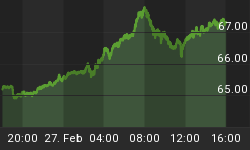There’s one big reason that Bitcoin can’t replace fiat currencies any time soon: They would take down the entire internet, according to a Swiss-based group that represents global central banks.
Switzerland’s Bank for International Settlements (BIS) said in a report released Sunday that any attempt to process all payments in Bitcoin as a new currency replacing traditional currencies “could bring the internet to a halt”.
Furthermore, suggests BIS, it’s definitely not time to give up on central banks because the promise of decentralized trust is a crypto illusion.
While cryptocurrencies promise trust that bypasses the whims and agendas of banks and sovereign nations, there are some gaping holes, according to the report.
“Cryptocurrencies such as Bitcoin promise to deliver not only a convenient payment means based on digital technology, but also a novel model of trust. Yet delivering on this promise hinges on a set of assumptions: that honest miners control the vast majority of computing power, that users verify the history of all transactions and that the supply of the currency is predetermined by a protocol,” BIS writes, suggesting that this onerous process may not always be efficient, and trust may be more elusive than we think.
BIS also lashed out at the massive energy use for mining cryptocurrencies.
“At the time of writing, the total electricity use of bitcoin mining equaled that of mid-sized economies such as Switzerland […] Put in the simplest terms, the quest for decentralized trust has quickly become an environmental disaster.” Related: Crypto Heists Are On The Rise
But while even the mention of the “environment” or “energy” can put the average die-hard bitcoin bull to sleep, the underlying economics might garner a response.
And it comes down a cost: "Just imagine, if you bought a $2 coffee with bitcoin, you would have had to pay $57 to make that transaction go through," BIS head of research Hyun Song Shin said.
According to BIS, bitcoin as a form of currency has three key shortcomings: scalability, stability of value and trust in the finality of payments.
And in order to process our current level of digital retail transactions with bitcoin alone would see the size of the ledger “swell well beyond the storage capacity of a typical smartphone in a matter of days”. From there, it gets worse—fast.
It would fill up a PC in a matter of weeks, and servers in a matter of months. After that, it would be a game that only supercomputers could handle. Nothing else could come close to keeping up with the verification process for all the transactions. And then, we lose the internet, brought down by communications overload “as millions of users exchanged files on the order of magnitude of a terabyte”.
But while cryptocurrencies may have no real future in terms of replacing fiat currencies, the underlying blockchain technology that makes them possible holds great promise, the bank said.
More specifically, BIS sees promise in the overall idea of Distributed Ledger Technology (DLT), pointing to lower-volume cross-border payment services that can be more efficient than mainstream centralized solutions and make operating costs cheaper.
By Jan Bauer for Safehaven.com
More Top Reads From Safehaven.com:
















